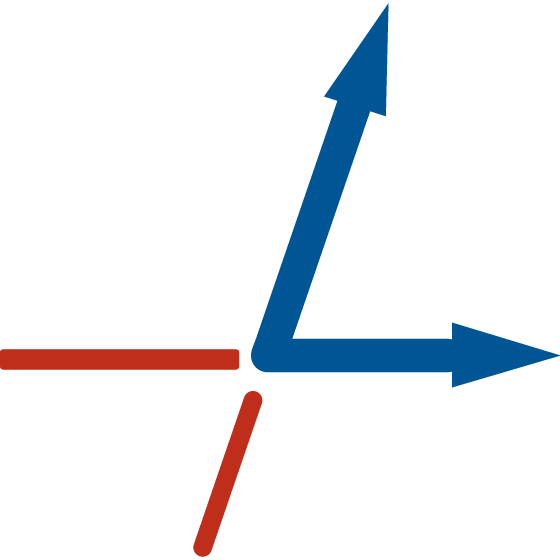The sales profession is defined by the intense requirement to produce results and, worse yet, continually top past success with even greater numbers. Each sale brings only temporary relief before another sale has to be made…then another and yet another. One month of success gives way to a new month of pressure. A salesperson who wins the annual sales contest discovers that satisfaction soon evaporates because a new year of sales challenges lies ahead. In a world that teaches us to be spiritual beings satisfied with the things we have, how can one find peace and calm in a profession that seemingly violates every law of spirituality? There is an alternative…
Our mission at Building Leaders is to help salespeople and sales managers replace the inherent pressure to produce results with a controlled process under their control. The process enables our company to fulfill the mission of “Driving You to Fearless Sales Leadership.” This level of sales growth requires you to deal with the psychological challenges of the profession by first understanding theoretically why the fear is created and then how to cope.
Nearly seventy years ago a psychologist, Abraham Maslow, developed a psychological theory which provides the ideal backdrop to illustrate our model of fearless sales leadership. Maslow’s theory has become known as the “Hierarchy of Needs.” He asserted that people must rise through levels of personal development in order to achieve a state of “self-actualization.” (See Figure Below) At the basic level, people first fulfill their physiological needs for air, water, and food. After physiological needs are met, humans strive for the safety of shelter, clothing and transportation. Thus physiological and safety needs combine to provide the foundation for human existence, but hardly for a fulfilling life. We want and need more than mere survival.
We need the human touch and the emotional bond of love created by the acceptance of belonging to social groups – families, clubs, and organizations. This is why we associate so readily with our favorite schools, sports teams and geographic regions. We seek tribal interaction and the connection with social groups that provides acceptance. Ultimately it is not enough to merely belong; eventually this desire is superseded by the goal to attain esteem, recognition and authority within the social group.

Maslow points out that all of these needs – i.e. Physiological, Safety, Belonging and Esteem – are external needs which require fulfillment from other people or objects. More significantly he noted that these needs don’t produce any lasting satisfaction, but instead only negate the emptiness that previously existed. Thus, in his book The Psychology of Being, he referred to these categories as “D needs” – i.e. Deficit Needs – because they only fill a temporary shortage for basic human survival, whether biological or emotional and more importantly require an external stimulus to achieve fulfillment.
It is easy to see how this works in the biological realm – e.g. water and food satisfy thirst and hunger, although only temporarily – but it also works in a psychological way. Praise and recognition provide only a temporary boost to the ego and must eventually be repeated to satisfy future emotional needs. The cycle continues as external stimuli fill voids only temporarily. Eventually people want more fuel – whether material, biological or emotional – to replenish the deficit.
The psychology of deficit “D” needs is exactly the same for salespeople. Short term sales success provides a quick jolt of happiness, which is soon vaporized by the realization that a new sale needs to be created. A month of sales success ends with the realization that upcoming months of sales pressure loom. The mission for salespeople to fulfill deficit needs – i.e. constant sales success – creates a very real psychological challenge.
The Solution – Self-Actualization
In order to achieve happiness, a human being must eventually find an internal compass of satisfaction which Maslow called “self-actualization.” Therein lies the problem in life and sales. Happiness and self-actualization requires one to forsake a reliance on external approval and stimuli and thus focus on achieving peaceful satisfaction in a chaotic and dangerous world. Maslow called this internal mechanism a state of “Being” (or “B-Needs.”)
Self-actualized human beings engage in self-improvement pursuits such as reading a book, developing a scientific theory or striving for a personal physical goal, not for the approbation of others, but for their own gratification. They are satisfied with themselves and joke at their own expense instead of others. Moreover, they recognize that the most important benchmark of success is their own expectations.
When Abraham Maslow developed his theory on the Hierarchy of Needs, he probably did not envision a link to sales performance. There are, however, interpretations in his work that I believe can be connected to many aspects of life, including the profession of selling. The continuous emphasis on past results creates future deficit needs to achieve more results without including the “self-actualized’ development of performance.
The salesperson must learn to focus on the activities that can be controlled and managed each day with the knowledge and belief that “good actions will produce good results.” The self-actualized manager therefore evolves from overseer to mentor, guiding performance while reducing fear and undue focus on results. This is not to deny a link between results and activity, but rather to stress that the only way to manage future results is by concentrating on the activities which are predicted to produce desired outcomes. The satisfaction in the job must become doing the job.
At Building Leaders, We believe and trust that the right sales process will produce desired results. Our training programs give salespeople and managers a “how-to” guide for long-term sales success. The process links measurable performance benchmarks to predictable future results to help salespeople discover ways in which they can achieve a focus on “being” a salesperson rather than attach to the “deficit” needs that create constant fear.
From KRIs to KPIs
The best illustration of “Deficit Needs Pressure” is provided by traditional measurement of Key Performance Indicators (KPIs) in business. Ask any executive or manager to define the KPIs by which they measure sales performance and they will include data such as results such as volume, profit margin, product mix, year-to-date comparisons to previous years, and so forth.
Proper redefinition of these data would list them as Key Results Indicators (KRIs) because they really are not “performance” indicators. True KPIs include prospecting data, sales activity, and database development. The only way to achieve desired results (KRIs) is to define and measure the performance activities (KPIs) that link to results.
Any person serious about losing weight recognizes that diet and exercise are the KPIs to success; the actions produce the desired results. In the same way, a salesperson serious about achieving sales success focuses on the right prospecting data, closing ratios, presentation methods, activity levels, listening skills, and the other practices which create predictable future results.
It is vapid and ineffective leadership to merely criticize bad results after the fact. Thus, in order to create powerful sales leadership behavior, measurements must be predictors of future results. Ultimately the best leadership of any performer begins with a behavior mindset in which praise and constructive feedback are focused on creating self-actualized performers. Success is not what you get, it is what you do.
The Sales Manager must be diligent in understanding the link between behaviors and results or else Salespeople will (appropriately) rebel when forced to engage in tasks that provide no link to end results. “Reporting to the boss” tools such as call reports become adult-to-child communication devices that hinder productivity. Sales support tools and activities must be conceived and utilized as adult-to-adult learning assets that establish team objectives and create coach-to-performer interaction.
From Fear-Based Results to Self-Actualized Performance.
The Self-Actualized Salesperson shifts the mindset from results to performance. (See Figure Below) A process is developed with the trust that results will naturally coincide. The dialogue regarding price shifts to a total value proposition. At the same time, the salesperson is courageous enough to forego the presumption of a sale and keep an open mind to determine if the fit is right, ironically creating a sales magnetism that attracts clientele instead of repelling them with the “push” for a sale.

The Self-Actualized Salesperson becomes a student of the profession and recognizes that personal growth will eventually create the skills that fulfill wants and needs. At the highest level, the Self-Actualized salesperson is one who engages in the profession for the sake of giving to others and constant self-improvement. This means selling client benefits and results before product features. It means going to work. It means continually evolving to get better and adapt to an unstoppably changing world.
At Building Leaders, our formula for success has worked for thousands of past students. It will work for you.
For more information on these or other sales theories, please contact me.

Join our mailing list to view this Free Resource!
Please enter your email to get instant access to this content, as well as Rick's Tips newsletter!




